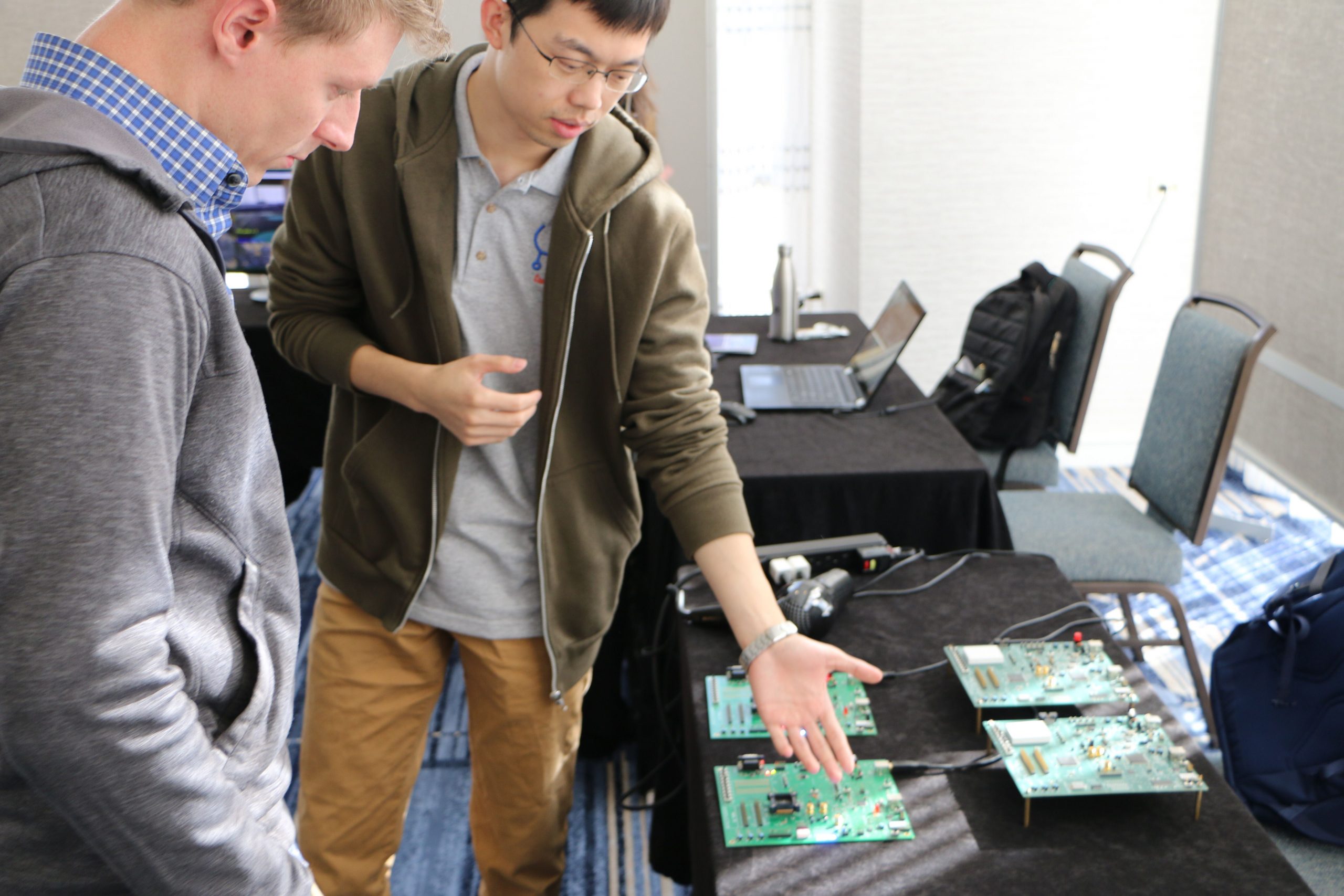The Warren B. Nelms Institute for the Connected World has successfully secured more than $5 million in funding for education and preparation of students for careers in Internet of Things (IoT) technology, hardware security, and cybersecurity. These grants are helping to expand Warren B. Nelms Institute-led research meant to address the national skills shortage in IoT fields by providing research, professional development for students, and K-12 outreach.
The following are some of the institute’s recent projects on education and workforce development:
GENCYBER SUMMER CAMP: HARDWARE SECURITY FOR HIGH SCHOOL STUDENTS
Wanli Xing, Swarup Bhunia, Mary Jo Koroly
Funding: NSA/NSF, $150K total
The GenCyber grant is funded for high-school student education on hardware security. The established national program provides summer cybersecurity experiences for students and teachers, with the goal to “ignite and sustain cybersecurity interest at the K-12 level in order to build a competent, diverse, and adaptable cybersecurity workforce pipeline.” This grant allows UF researchers to establish a GenCyber summer camp at UF.
SaTC: EDU: An Integrative Hands-on Approach to Education of Vehicular Security
Sandip Ray, Wanli Xing, Swarup Bhunia, Janise McNair
Funding: NSF, $500K total
Transportation systems have seen a rapid transformation in recent years, with an explosive infusion of autonomous features, however this has led to the increasing vulnerability of these systems to cyber-attacks. Existing curricula across the universities in the United States do not provide adequate insight into the spectrum of security threats in transportation, with only glimpses of the issue sprinkled across research seminars.
The research team is developing an a comprehensive hands-on experimental platform to enable understanding of unique security challenges at vehicular hardware, sensor, compute, network, and full platform levels. The platform will target multi-disciplinary undergraduate students across STEM areas relevant to transportation and will additionally facilitate training of transportation engineers, designers of vehicular electronics, and practitioners in security of hardware and cyber-physical systems.
Project HaHa: Hands-on security education
Sandip Ray, Wanli Xing, Swarup Bhunia
Funding: State of Florida, $1.4M total
This collaborative project with Florida International University and University of South Florida focuses on engaging students in practical learning of computer hardware security using a hands-on approach. Graduate students perform a set of well-designed experiments on a custom-designed hardware platform, called HaHa, to understand innards of a computer system and ethically “hack” into it at different levels. The custom-designed hardware platform is called Hardware Hacking board (HaHa). It is an experimental development board for teaching and learning on diverse aspects of hardware security.
COLLABORATIVE RESEARCH: INNOVATING QUANTUM-INSPIRED LEARNING FOR UNDERGRADUATES IN RESEARCH AND ENGINEERING (INQUIRE)
Philip Feng, Jing Guo, Wanli Xing, Gloria Kim
Funding: NSF, $2M total
The INQUIRE project in collaboration with the University of Minnesota will address both software (theoretical foundation, algorithm, programming, and modeling) and hardware (quantum technology implementations from materials, devices, to circuits and practical systems) aspects of quantum information science and technology (QIST) learning. The multidisciplinary nature of quantum technologies poses challenges to providing a comprehensive education for undergraduates from different degree programs who may lack the technical background. This project aims to lower barriers to entry, to develop transferable skillsets for quantum computing and engineering, and to prepare students for entering this rapidly emerging field. INQUIRE will generate knowledge about conditions under which improved student learning of quantum science and engineering occurs and the effectiveness of the created hands-on tools and experiential approaches.
COLLABORATIVE RESEARCH: PEEK INSIDE THE BOX: GAMIFIED LEARNING OF COMPUTING HARDWARE
Pasha Antonenko, Swarup Bhunia, Mary Jo Koroly
Funding: NSF, $400K total
Despite college students using technology every day—and many entering college with an understanding of programming—most lack basic knowledge of computing hardware fundamentals. But there is a solution to this problem: games that teach hardware fundamentals. The team plans to work with high school teachers to co-develop curriculum that uses a gamified approach to motivate and engage college undergraduate and high school students to stimulate interest in computer hardware. The investigators will design and test a new gamified curriculum at UF before introducing them to high school students and teachers at UF Center for Pre-collegiate Education and Training summer institutes.
CRYptOCOMICS: Cultivating Elementary Students’ Interest in Cryptography and Cybersecurity Education and Careers
Pasha Antonenko, Kara Dawson, Swarup Bhunia, Amber Benedict
Funding: NSF, $956K total
A team of educators and researchers are working to cultivate elementary school students’ interest in cybersecurity and cryptography, the art of making and breaking codes. The goal of the project is to design and implement a new technology-enhanced STEM education curriculum to engage 3rd – 5th graders, particularly girls and minority students, in cryptography and cybersecurity and STEM identity development as they make and break secret codes. The curriculum, titled CryptoComics, is an after-school program which strategically integrates a digital comic book, apps and unplugged activities.
